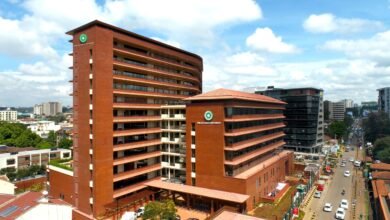
The Kenyan government is preparing to distribute a significant Ksh.20 million to 16,000 Kenyan musicians on January 25, 2024, as announced by the Music Copyright Society of Kenya (MCSK).
The long-awaited payout is a result of years of musicians fighting for just remuneration for their creative work.
Each artist is slated to receive Ksh.1,250 in royalties. Ezekiel Mutua, MCSK’s CEO, recognized the government’s dedication to increasing payment rates.
The updated music rates, developed in partnership with Google, broadcasters, and Matatu operators, are designed to provide fair compensation for musicians. The MoU signed with various stakeholders is a testament to the collaborative endeavor to empower creators and stimulate growth in the Kenyan music sector.
During the 31st Annual General Meeting of MCSK, musicians expressed their concerns about unpaid royalties and the perceived disregard of the music industry by the relevant authorities. Mutua assured artists that the government is actively reassessing tariffs and royalties to ensure fair compensation and is strengthening copyright laws to protect musicians’ work.
Under Mutua the music industry has seen significant changes, including a significant rise in YouTube music pay rates to 16.5 percent, a leap from the previous 1.7 percent.
This rate surpasses those in many countries, including the United States. Mutua urged musicians to create meaningful music free from vulgar language and promised government backing in strengthening copyright laws for better protection.
Kenyan musicians have long called for government intervention to tackle industry challenges and ensure fair royalty collection. The expected payout signifies a major step towards acknowledging and compensating artists for their invaluable contributions to the dynamic Kenyan music scene.
In Kenya, there are four CMOs. KOPIKEN licenses the reproduction of copyrighted materials; PRiSK represents performers in music and dramatic works; MCSK collects and distributes royalties on behalf of authors, composers, and publishers in the music industry.
The fourth, KAMP, collects and distributes royalties to producers of sound recordings. MCSK also represents the interests of other performing rights organizations in Kenya through reciprocal agreements.
As per the Music Act of Kenya, establishments such as bars and discotheques, businesses like salons, barber shops, and Matatus (public transport vehicles), among others, need copyright licenses from MCSK to play local music. Radio and television stations also pay to broadcast music.





